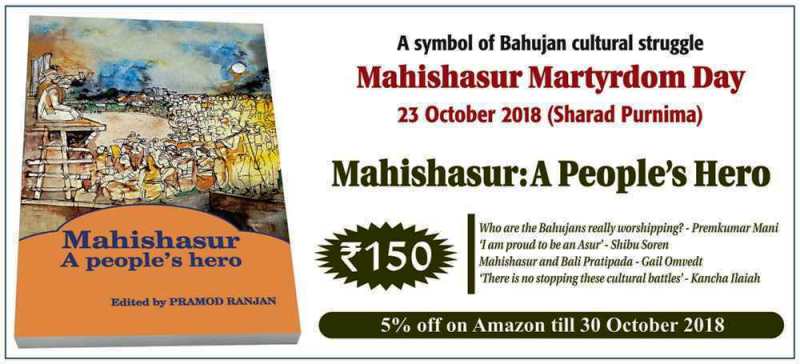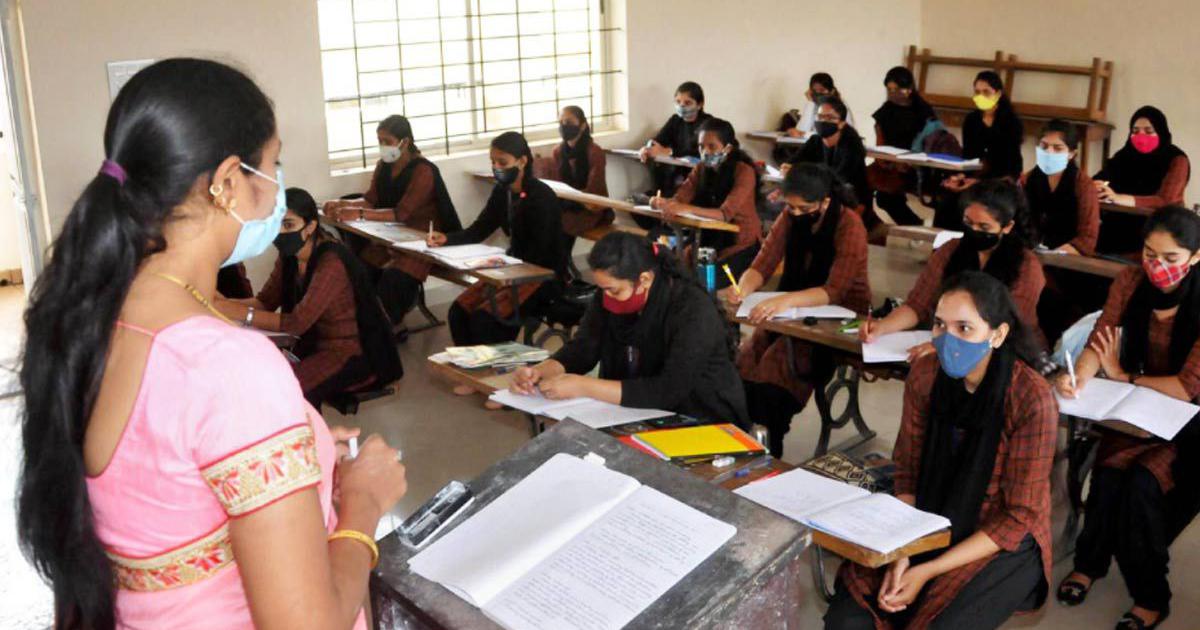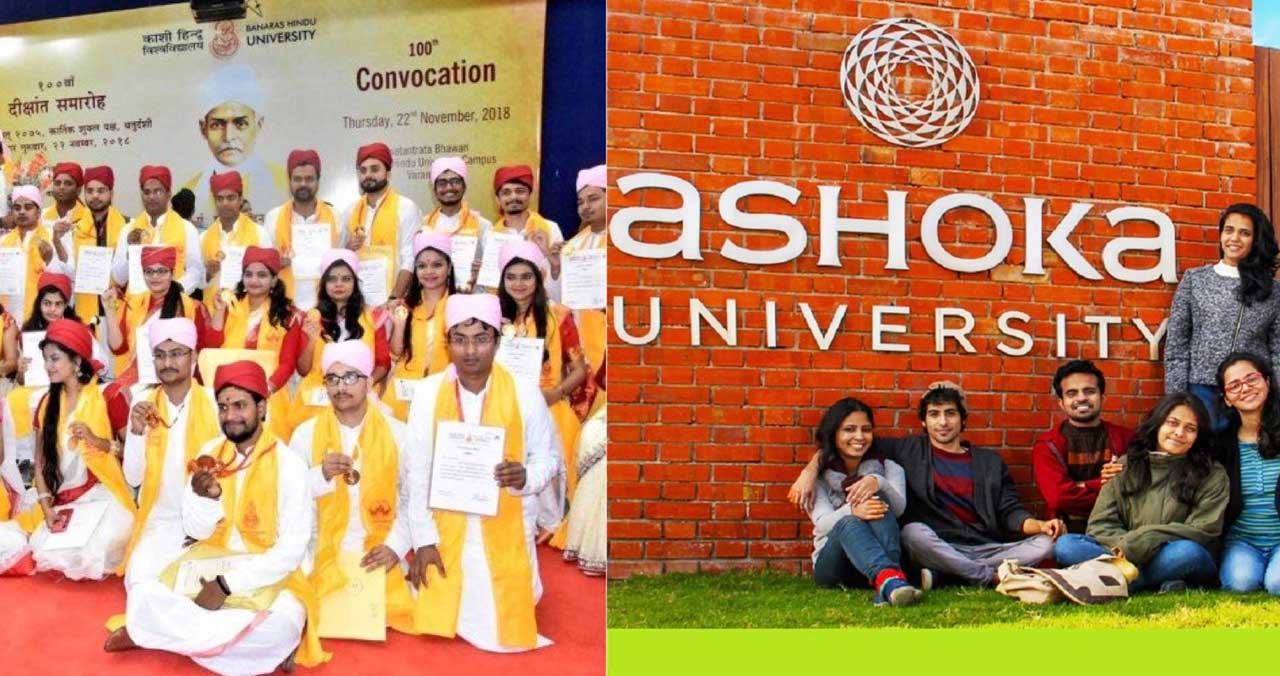The University Grants Commission (UGC), through a notification issued on 2 May 2018, dropped more than 4,000 magazines from its list of approved journals. Among them were many unknown and little-known journals, which were charged with publishing sub-standard research papers in return for a consideration. However, the list also includes quality magazines, known for resisting the dominant intellectual discourse.
The magazines which have been ousted from the list include Forward Press, online edition of Economic and Political Weekly, Samyantar, Hans, Vagartha, Jan Media and Gandhi Marg. It might be pertinent to mention here that there is hardly any research work on humanities which does not quote from any of these journals. Not only that. The UGC has also blacklisted a host of magazines which present Buddhist and SC, ST discourses. This means that the researchers whose papers are published in these magazines would not get the additional points fixed by the UGC.
The UGC said that the some professors, scholars, academicians and many ‘unnamed persons’, besides media persons, had complained about the poor quality of these magazines, after which a committee was constituted and the magazines were dropped from the list.
We are publishing a series of articles on this move to apprise our readers with the seriousness of the issue and its repercussions. Read the reactions of Prof Apoorvanand, Prof Chauthiram Yadav, Tejpal Singh and Shaleen Singh – Managing Editor.
Apoorvanand: Those who delisted the magazines are a bunch of incompetent persons
- Kamal Chandravanshi
“A nation that wants its youth to obey and follow blindly is a poor nation. It is sad that this nation doesn’t back Umar and Kanhaiya and does not accept the challenge from them, it penalized them merely because they dared to raise questions. Let us not sacrifice them. Let us not murder our own children.”
Professor and writer, Apoorvanand, is known for his sharp pen. He is well-known professor of Hindi. Reacting to UGC’s decision he says, “Who are the persons taking these decisions? Do they know anything about the fields, the subjects, they are dealing with? Do they understand literature, social sciences or political science? Do they know what the magazines and the journals are supposed to write? Clearly, all this (delisting of magazines) is being done arbitrarily and it is a matter of deep concern. The UGC is overflowing with incompetent people. If there is no intention behind it, if there is no ideological objective, if there is no ideological bias, then the only conclusion is that a bunch of incompetent persons are handling this job there (in UGC).”

Apoorvanand, who is a strong votary of the rights of the minority communities, says “They are incompetent ignoramuses. It is a matter of deep concern that the institution which lays down standards for higher education is chock-a-block with ignorant persons.”
Chauthiram Yadav: UGC has no independent existence
Famous author, social worker and academician Chauthiram Yadav says, “This government perceives even a peaceful demonstration as against it – as a threat to its existence – let alone magazines which seriously critique its actions. India is in the grip of an unannounced dictatorship. And its outcome is there for all to see. The UGC doesn’t have an independent status. It is crawling on all fours before the government. Do we know, who the chairperson of the UGC is? The government is everything for it. The UGC may have a chairperson, but does anyone know who he or she is, what his or her views are. The long and short of it is that the UGC is a slave of the government. It doesn’t have an independent existence. All the institutions have become government’s slave. They do what the government wants them to. Not only UGC, the literary academies, the social organizations, the organizations of journalists – the situation is the same everywhere. As for higher education, things are going from bad to worse. Fear is in the air. Everyone is under threat. The government thinks that these magazines, what they say, or the movements and protest demonstrations will hurt its image. The truth is that its image is already in the mud.”

Chauthiram Yadav says, “The people, the society, and the thinking society – all are completely disillusioned with the government. But what will this ban achieve? People from UP and Bihar were hounded out of Gujarat, they were harassed. This is done by the government. And the same thing is happening elsewhere. But no one is any the wiser because this section (intellectuals, academicians) is in the state of inertia. The atmosphere is just like what prevailed at the time of the partition of the country. If some people wants to take out a peace march, if they want to have a dialogue, they are stopped, they are thrown into jails. All this shows how scared the government is – whether it is the central government or the governments of UP, Bihar or Gujarat – they all are scared.”

In the words of Yadav, “To ensure that nothing that goes against it reaches the people, the government is stifling the voice of magazines, of small newspapers. But this will work only for a short time. What will you do with the protests and the agitations? They will continue. This government is absolutely unconcerned with social justice. It is doing what it is doing, only for electoral gains. But what it is doing in the field of higher education is dangerous. This government only shows off. It has no interest in the welfare of the Bahujans. Forward Press was delisted so that no one can hear the voice of the Dalits, the Adivasis and the Backwards. Everything is focussed on electoral politics.
He adds, “Everything is being done just for the sake of votes. This man [Prime Minister Narendra Modi] has never said a word in the interest of the nation. His every statement – whether made in India or abroad – is only and only aimed at winning elections and for his own and his party’s publicity. How will he do anything for the OBCs, SCs and STs … everyone is opposed to them, they are oppressing everyone. In the name of Hindus and Muslims, the government is spreading poison in society. We all, the entire society, know what their objective is. They may be saying that they are working for all sections of society. But it is rubbish. Their real face is different from the face they are projecting before the people. Democracy has ended. It is not Loktantra – ‘Lok’ has gone missing. It has become a loot tantra. They are selling the country. They are selling higher education. They are letting those, who have sold the country, to abscond. There is no control. Could these people have escaped abroad without government’s consent? The situation is such that you cannot speak, you cannot resist; otherwise you will be harmed, you will be banned. The country is passing through a dangerous phase. The intellectual and academic classes will have to intensify their protest. Yes, when we all will mount pressure, the people will mount pressure, then things will change. When they will start feeling that their vote bank is getting dissipated, they would change.”
Chauthiram Yadav is a well-known Hindi writer and critic. His many books on criticism are published. Books written or edited by him including Chayawadi Kavya: Ek Drishti, Madhyakaleen Bhakti Kavya Mein Virahanubhuti Ki Vyanjna, Hindi Ke Shrestha Rekhachitra, Hazari Prasad Dwivedi Samagra: Punavralokan, Lok Dharmi Sahitya Ki Doosri Dhara etc. He is the winners of Sahitya Sadhna Samman (Bihar Rashtrabhasha Parishad, Patna), Savitri Tripathi Samman, Asmita Samman, Kabir Samman, Ambedkar Priyadarshi Samman and Lohia Sahitya Samman. Born in 1941 at Kayamganj, Jaunpur, Uttar Pradesh, Yadav is active on many intellectual platforms.
Tejpal Singh: Who is guilty, what is the basis?
Well-known writer and thinker Tejpal Singh says, “Rules stipulate that the degree of PhD can be awarded to a researcher only when he gets an article on a topic related to his thesis published in a recognized journal. These days, it is alleged, the researchers, more often than not, use the Internet to collect content for their articles. This is very natural. After all, you have to learn from someone or somewhere – whether it is the Internet or your guide. So, to say that students do a cut-paste job to prepare their research papers is wrong. Today, the Internet has taken the place of teachers. These days, even the teachers cannot face the students without accessing content available on the web. And that is because nowadays, the students do not fight shy of counter-questioning their teachers.”

He says, “The fact is that these days in almost all universities the teachers themselves encourage the students to use the Internet. It is also a known fact that the teachers get weightage in promotions from the post of lecturer to reader and from reader to professor if they have published books. And they also use the Internet.”
Tejpal Singh says that he doesn’t know how and why journals can be faulted for this trend. “Whenever they publish any article, they ask the writer to give an undertaking that it is an original work. Then, instead of blaming the researchers or their guides, how can the magazines be blamed. Why shouldn’t the so-called guides be held responsible? If the students are using plagiarized content, they are doing so with the approval of their guides. The magazines do not ask the researchers to copy material from the Internet.”
He says, “Also, why shouldn’t the UGC be charged with discrimination for removing 4,000 journals from its list. Now, where will the research students get their works published? Let us forget about what the journals are saying. This move is also unjust to the students. If the government does not intervene in the matter, it will be presumed that it is backing the UGC’s move or that the UGC had done this at the government’s behest.”
Dr Shaleen Singh: Policies need to be changed
Dr Shaleen Singh, assistant professor and head of the English department at Swami Shukdevanand College, Shahjahanpur (Uttar Pradesh), says, “It is a matter of deep concern that prestigious magazines have been dropped from the list arbitrarily. This is really sad. The leading magazines, which are publishing content, have been delisted while the second-rate and poor-quality magazines have been retained. This is not good for the future of higher education. If qualitative content is not available, higher education will land in a mess.”

Shaleen Singh says that the UGC will have to change its criterion for deciding which magazine is good and which is bad. Only that can do some good.
Translation: Amrish, copy-editing: Lokesh
Forward Press also publishes books on Bahujan issues. Forward Press Books sheds light on the widespread problems as well as the finer aspects of Bahujan (Dalit, OBC, Adivasi, Nomadic, Pasmanda) society, culture, literature and politics. Contact us for a list of FP Books’ titles and to order. Mobile: +917827427311, Email: info@forwardmagazine.in)
The titles from Forward Press Books are also available on Kindle and these e-books cost less than their print versions. Browse and buy:
The Case for Bahujan Literature
Dalit Panthers: An Authoritative History





